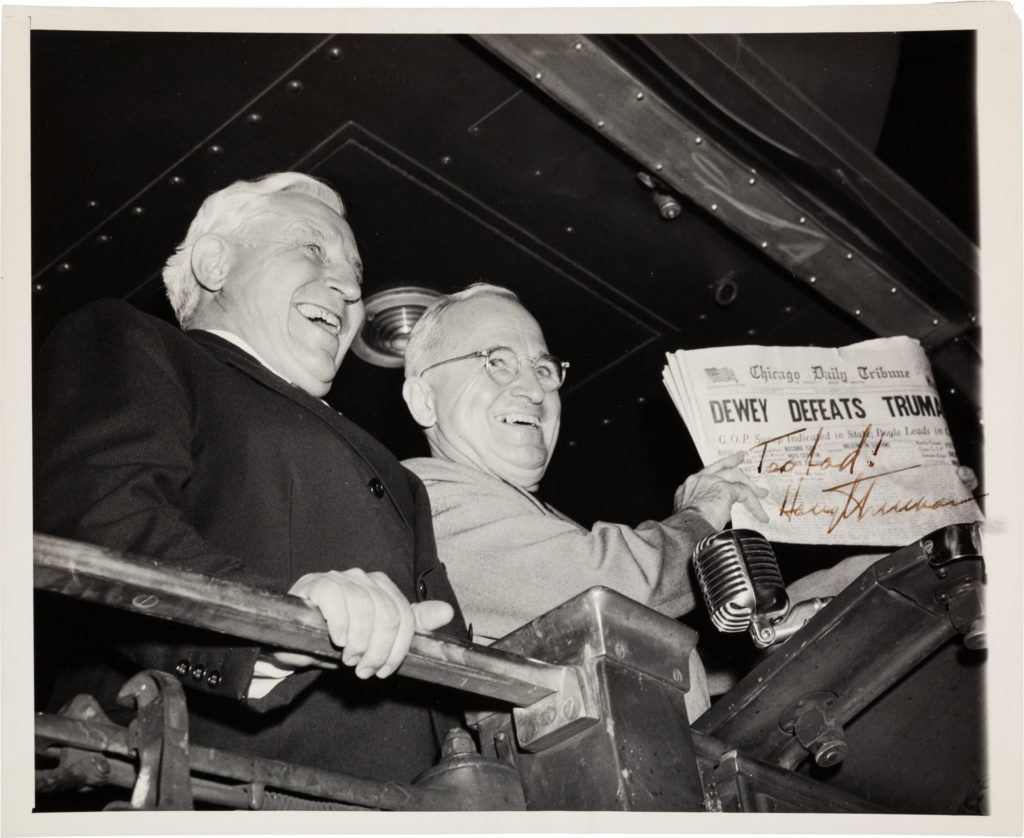
By Jim O’Neal
Harry S. Truman moved back into the newly rebuilt White House in March 1952 and he had already decided not to seek reelection.
Since Truman had only served one full term as an elected president (having filled a partial term after Franklin D. Roosevelt died in office), he was eligible to run for president a second time. This was the same dilemma that had confronted two of his predecessors: Teddy Roosevelt and Calvin Coolidge, both of whom had decided not to run a second time. Truman was well aware of their personal deliberations; the first Roosevelt had lived to regret not running, while Coolidge had never looked back.
In 1951, after four years of debate, Congress ratified the 22nd Amendment of the Constitution, which limited an elected president to two terms. This was a reaction to FDR’s long tenure, and it specifically exempted Truman. But, he had made up his mind.
He addressed the Democratic Party’s historic Jefferson-Jackson dinner at the D.C. National Guard Armory. “I shall not be a candidate for reelection. I have served my country long and I think efficiently and honestly. I shall not accept a re-nomination.” He added in an ironic tone not typical of him, “I do not think that it is my duty to spend another four years in the White House.”
Although he was a tough-skinned politician, he resented the negative public opinion that had risen around him. His time in office, eight years less about two months, had been tumultuous, filled with achievements that had not been easy. His call for liberal change had been rooted philosophically in the New Deal, but in the wake of World War I and increased prosperity, his call fell on deaf ears.
The American public was turning elsewhere, particularly after he vetoed an ardent Republican crusade to turn coastal tidelands mineral rights over to the states, and it was viewed as a lame-duck president lashing out. It was actually one of the few vetoes that stuck (12 of his vetoes were overridden by Congress) and it created an energy that would result in a Republican victory in the upcoming election.
At about the same time, the Treasury Department announced that the federal deficit would be double than the previous year and in the last months of his presidency, his popularity and spirits were low. He was ready to go home.
History has been kind to Truman. Every year, his standing on the Best Presidents list seems to improve. He was a small man in stature who assumed a big job at a crucial time and did his very best. Who could expect more?
 Intelligent Collector blogger JIM O’NEAL is an avid collector and history buff. He is President and CEO of Frito-Lay International [retired] and earlier served as Chairman and CEO of PepsiCo Restaurants International [KFC Pizza Hut and Taco Bell].
Intelligent Collector blogger JIM O’NEAL is an avid collector and history buff. He is President and CEO of Frito-Lay International [retired] and earlier served as Chairman and CEO of PepsiCo Restaurants International [KFC Pizza Hut and Taco Bell].
